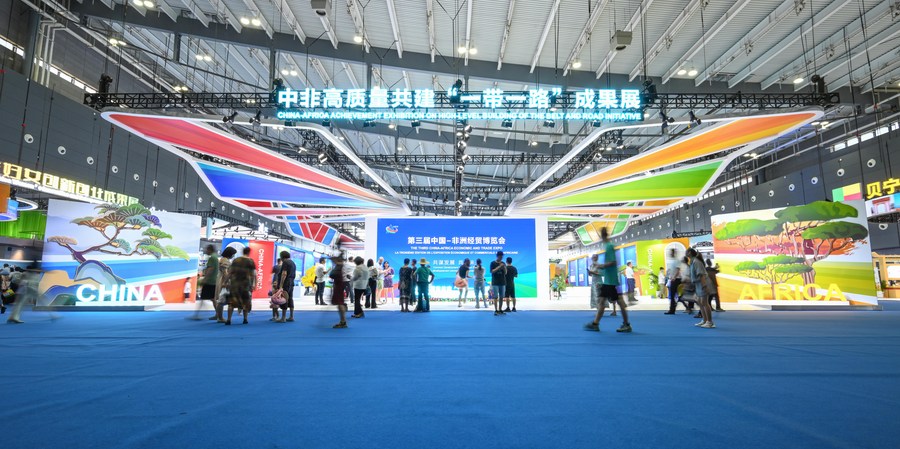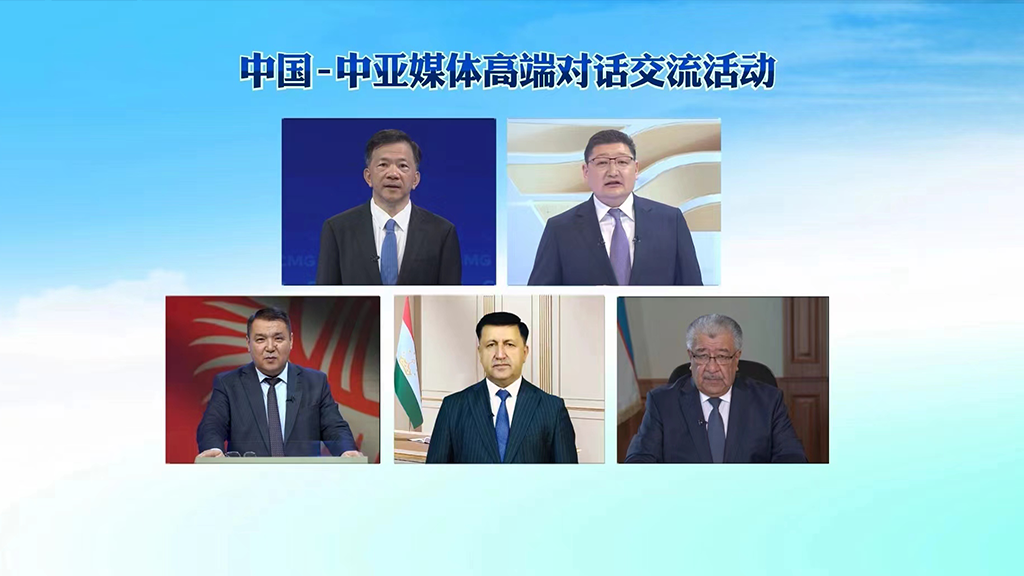China Focus: Women innovators shine with IP progress

BEIJING,
April 26 (Xinhua)
China's remarkable progress in independent innovation has been characterized by the growing participation of women in the intellectual property (IP) industry.
More Chinese women have utilized their innovative potential to target the science frontiers, serve the economy, and benefit people's livelihoods.
Chinese women innovators have come under the spotlight as the theme of this year's World IP Day, marked on April 26, focusing on "Women and Intellectual Property: Accelerating Innovation and Creativity."
Their stories are also a great interpretation of China's rise in innovation around the globe.
FOR SCI-TECH SELF-RELIANCE
"Women prop up half the sky." The famous Chairman Mao quote applies to modern China's space exploration.
Li Wenjing, at the China Aerospace Science and Industry Corporation, is one of the women scientists contributing wisdom to the country's innovation.
The Long March-5 is a Chinese carrier rocket tasked with vital missions such as launching the Mars probe, lunar rover, and modules of the space station.
In the developmental stages, one problem Li handled was a large amount of heat generated by engine gas pipelines that damaged interior electronic components.
It necessitated scientists to figure out a method of preventing overheating conditions. Li's team came up with a high-efficiency heat-resistant material, but she found it very demanding.
No previous studies applied for reference after reading a range of research papers at home and abroad.
"We had to make it from scratch," Li said.
Thanks to their unremitting efforts, Li and her colleagues created a thermal insulation material and a preparation method to make it.
The inventions won China's gold patent award in 2018. The success was repeated in creating materials for the Tianwen-1 Mars lander. Like most career women, Li strives to balance family and work.
She often regrets spending so little time with her children due to work. But responding to the country's calls for tech self-reliance, the woman scientist is determined to contribute to developing more and more thinner and lighter materials for spacecraft.
FOR STRONG COMPETITION
Gree is a Chinese electric appliances giant with thousands of patent applications. Its chairwoman is Dong Mingzhu, who values and rewards innovation.
She said women are the backbone of the company's innovative achievements, as female inventors accounted for more than 55 percent of Gree's patent applications.
She annually rewards employees for sci-tech contributions, and over 65 percent of winners are women. Dong's company has also actively joined the global competition through persistent R&D.
Her company has filed nearly 5,000 patents in 35 countries and regions, such as Europe, the United States, and Japan, bringing a host of international accolades.
Dubbed "Iron Lady" in business circles, the 68-year-old entrepreneur is a national lawmaker, too.
She has put forward many suggestions for IP protection, including stepping up efforts to crack down on patent trolls and malicious trademark filings.
"Stricter IP protection boosts Gree's confidence in innovation. It is also an effective way to enhance the core competencies of Chinese manufacturers," Dong said in an interview.
"We demand protection of proprietary technologies because it facilitates healthy competition in the industry and provides a solid foundation for iteration, upgrading, and breakthrough in technology. In other words, strict IP protection can encourage us to challenge ourselves to become more inventive and maintain our lead in technology R&D."
She is always ready to accept new challenges.
The entrepreneur jumped on the live-streaming bandwagon when the company's offline sales were hampered by COVID-19.
She promoted a range of product sales, including air purifiers and disinfectant generators, to help consumers keep their houses healthy.
FOR IMPROVING LIVELIHOODS
Like Dong, Liang Qianjuan is also an excellent live-streamer on E-commerce platforms. A farmer from Gansu Province, Liang is not a patent holder and did not make any significant inventions.
But she has used IP to raise incomes of her own and others in her hometown. Liang opened an online shop and promoted local agricultural products with geographical indications (GIs).
GI is a type of trademark to show a product has a specific geographical origin and possesses qualities or a reputation due to that origin. It is a quality guarantee, distinguishing them from their competitors.
Benefits of GIs include standardized processes, increased production, and more employment for locals. Liang's hometown is a remote village in Longnan with rich GI resources, such as green tea, olive oil, and apples.
Local government has spent efforts in obtaining GIs in recent years. More farmers are now involved in the production and marketing of GI products.
After a local olive oil was listed as a protected product of a national geographical trademark, the olive trees are now planted on over 34,000 hectares, benefiting over 210,000 local farmers.
The output value reached 1.86 billion yuan (about 268.6 million U.S. dollars). The GI also allows salespersons to share the brand benefits.
The annual sales of Liang's online shop have climbed from tens of thousands of yuan to more than 4 million yuan over the past ten years.
Due to the expansion of her online sales, she now has 300 local farmers supplying products. Her success has also encouraged others, and there are now thousands of live-streaming hosts selling local products online in her hometown.
COURTESY: Xinhua
Follow us @NairobiReviewKE for more stories.
If you have a story you'd like us to share kindly DM us directly @NairobiReviewKE on twitter or send us an email on info@nairobireview.com.
What's Your Reaction?



































































































































































































































































































